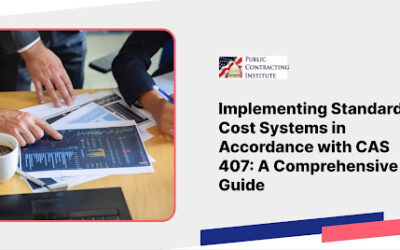By Richard D. Lieberman, Consultant
In a recent protest, the Government Accountability Office (“GAO”) reaffirmed its approach to agency cancellations of a solicitation—namely that an agency has broad authority to decide to cancel a solicitation and need only establish a reasonable basis. Meridian Knowledge Sols, LLC, B-420150 et al., Aug. 25, 2022. Many cancellations occur when an agency discovers that the solicitation will not meet the agency’s actual needs, as in the Meridian case.
The Department of Homeland Security (“DHS”) issued a Request for Quotations (RFQ) for information support services, to be established through multiple blanket purchase agreements (“BPAs”). DHS established BPAs with three vendors, each with different periods of performance. Meridian protested to the GAO that issuing varying periods of performance shorter than 10 years as required by the RFQ was inconsistent with a material term of that RFQ.
GAO sustained that protest and DHA agreed to reassess its needs and take corrective action. After reconsidering its requirements, DHS concluded that it needed to procure a learning system that met additional security requirements, specifically cybersecurity hacks. DHS decided to obtain the services through the Office of Personnel Management (“OPM”) USALearning contract, a single award indefinite delivery indefinite quantity contract available to all agencies.
Meridian challenged the cancellation of the solicitation and DHS’s decision to acquire its requirements through an Inter-Agency Agreement (“IAA”) with OPM.
The GAO denied both grounds of protest, noting that agencies have broad authority whether to cancel a solicitation and need only establish a reasonable basis. A reasonable basis to cancel, for example, exists, when an agency does not reflect its needs (e.g. no longer has a requirement or discovers an existing contract that would be more advantageous). However, Meridian alleged that the rationale was merely a pretext to avoid awarding the contract on a competitive basis. The GAO rejected this argument, recognizing the need for additional security against hacks. Even though Meridian alleged that the agency should have recognized its needs more swiftly, the GAO noted that “sometimes wisdom comes late” in the procurement process, and when an agency’s needs have changed, GAO will not question a reasonable change such as this.
GAO also concluded that the IAA with OPM was authorized by a specific statute (5 USC § 1304(e)).
Takeaway: Agencies merely need a reasonable basis to cancel a solicitation, even late in the procurement process. A change in agency requirements will most likely be found by the GAO as a reasonable basis for such a cancellation.
For other helpful suggestions on government contracting, visit:
Richard D. Lieberman’s FAR Consulting & Training at https://www.richarddlieberman.com/, and Mistakes in Government Contracting at https://richarddlieberman.wixsite.com/mistakes


